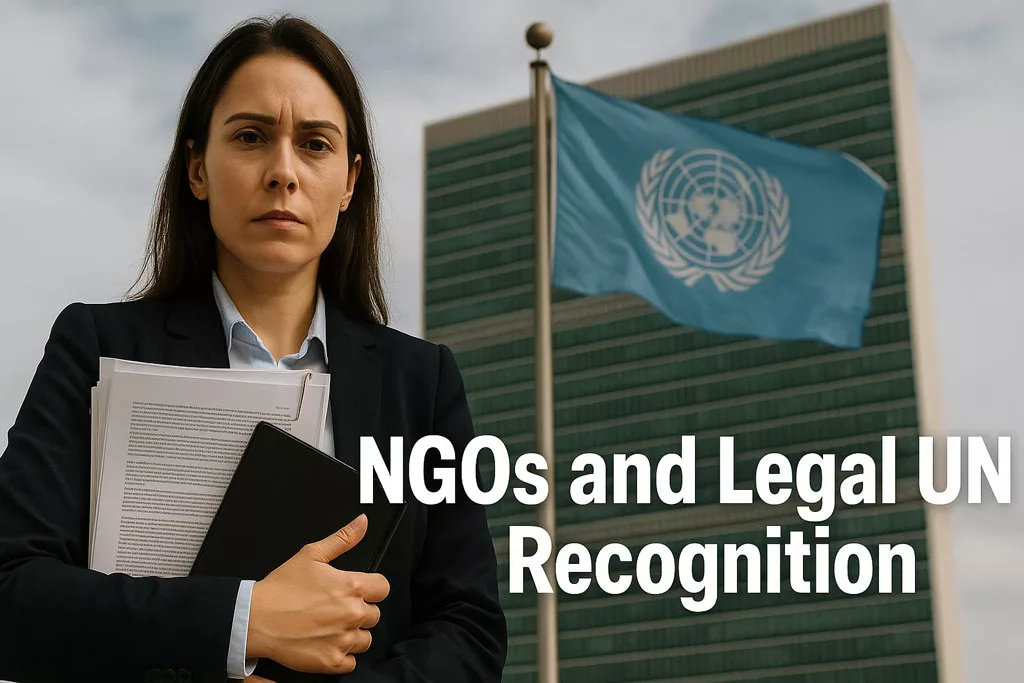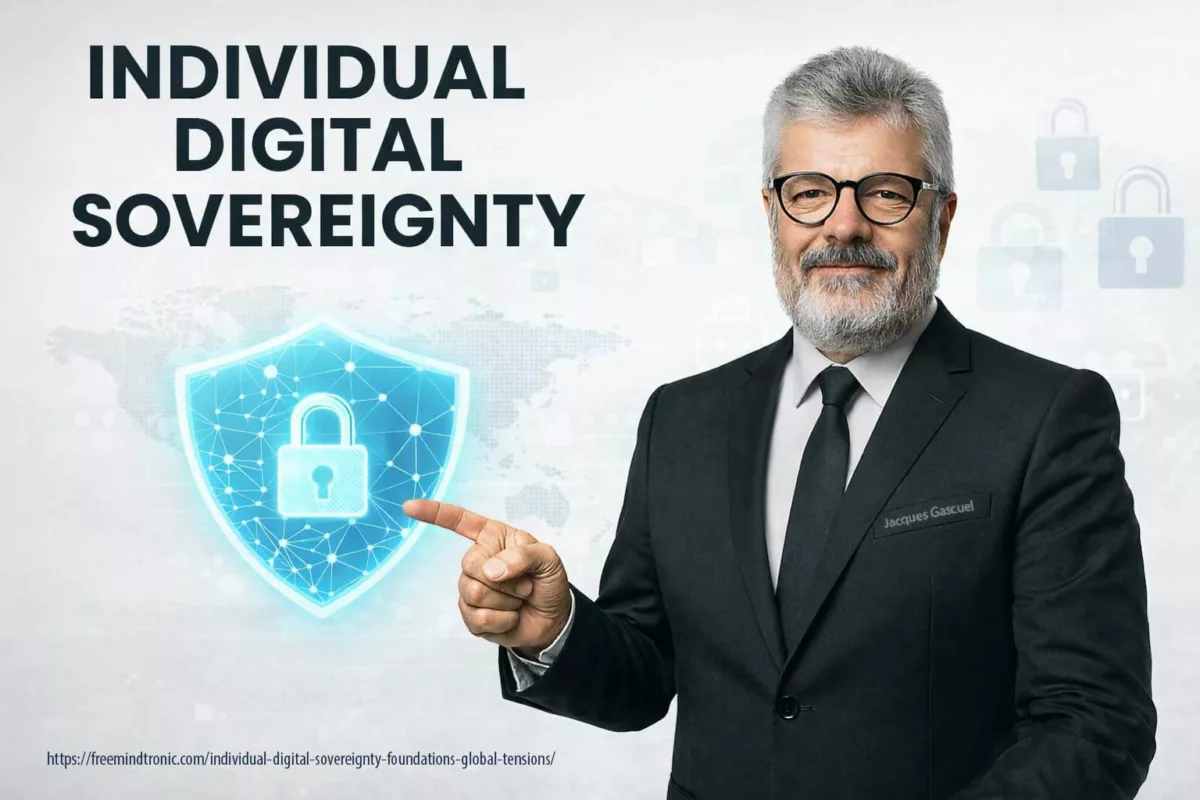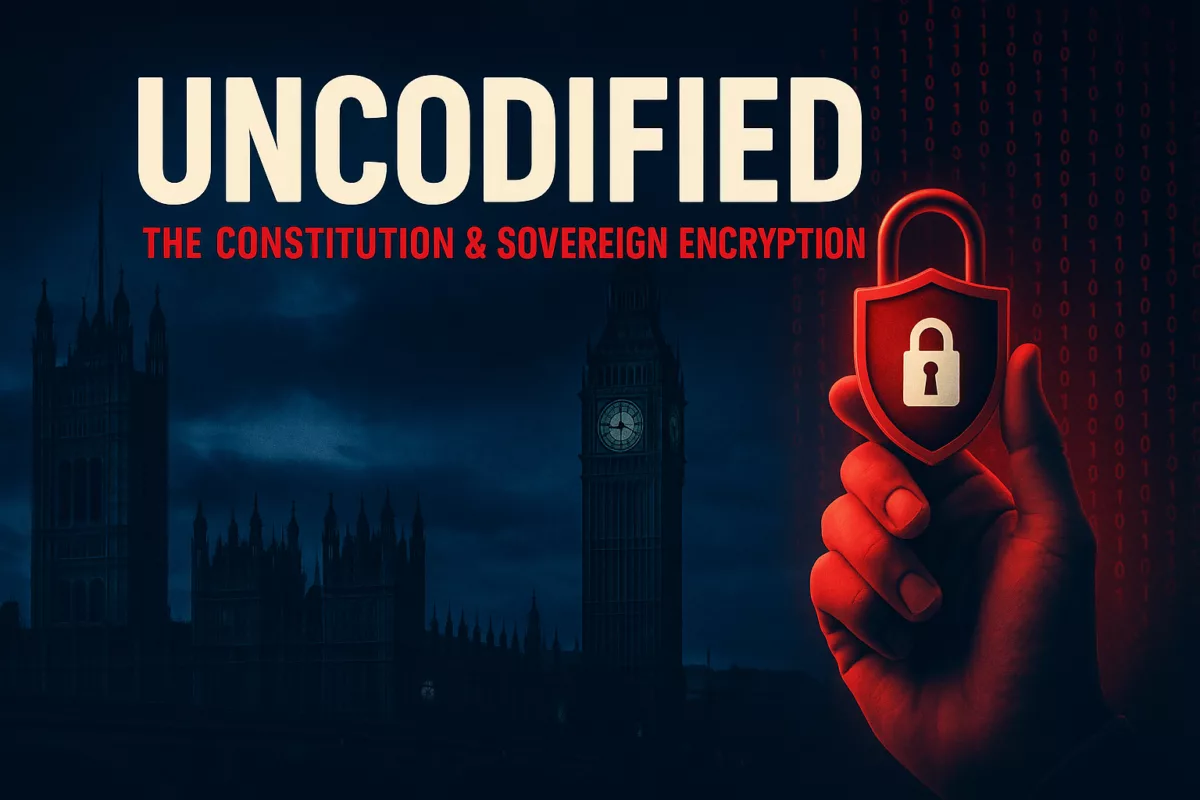NGOs Legal UN Recognition: Why It Matters for Global Legitimacy
This comprehensive article provides an in-depth analysis of Non-Governmental Organizations (NGOs), detailing their legal, social, and financial frameworks at both national and international levels. It particularly focuses on their crucial NGOs Legal UN Recognition by the United Nations (UN), notably through the ECOSOC consultative status. We explore the fundamental principles defining NGOs, their diverse roles as key global actors, and the varying national statutes they adopt. Furthermore, the article examines the complex international regulations, the process of obtaining UN consultative status, and the profound social impact NGOs exert on policy and humanitarian efforts. Finally, we dissect their financial management, highlighting sources of funding, transparency requirements, and tax benefits. This resource aims to be an indispensable guide for understanding NGOs’ vital contributions and the challenges they face in the contemporary global landscape.
2026 Cyberculture
Individual Digital Sovereignty: Foundations, Global Tensions, and Proof by Design
2025 Cyberculture
Constitution non codifiée du Royaume-Uni | souveraineté numérique & chiffrement
2025 Cyberculture EviLink
P2P WebRTC Secure Messaging — CryptPeer Direct Communication End to End Encryption
2025 Cyberculture Cybersecurity Digital Security EviLink
CryptPeer messagerie P2P WebRTC : appels directs chiffrés de bout en bout
2025 Cyberculture
Souveraineté individuelle numérique : fondements et tensions globales
2025 Cyberculture
Audit ANSSI Louvre – Failles critiques et réponse souveraine PassCypher
Index
- Introduction: NGOs, Indispensable Global Actors
- Defining NGOs: Core Principles and Diverse Roles
- What Defines an NGO? A Multi-Dimensional Approach
- Foundational Principles: Ethics in Action
- Legal Frameworks and NGOs Legal UN Recognition: National Sovereignty Meets International Regulation
- National Legal Recognition: Diverse Statutes
- International Regulations and NGOs Legal UN Recognition: Fragmented Governance
- Accreditation and Recognition: Legitimacy and Operability
- UN Recognition: ECOSOC Consultative Status
- ECOSOC Consultative Status: Gateway to Multilateral Diplomacy
- Eligibility Criteria: A Rigorous Process
- Categories of Consultative Status: Graduated Recognition
- Social Impact: Agents of Change and Development Catalysts
- Influencing International and National Policies: From Grassroots to Global Decision-Making
- Strategic Partnerships with the UN and Other Actors: Complementarity and Synergy
- Financial Frameworks: Autonomy and Accountability
- Sources of Funding: A Diverse Ecosystem
- Financial Management: Transparency, Ethics, and Efficiency
- Tax Exemptions and Customs Benefits: A Facilitating Framework
- The Digital Frontier: Cybersecurity, Cyber Safety, and AI for NGOs
- The Importance of Counter-Espionage Solutions for NGOs
- Cyber Defense: A Strategic Pillar for NGOs
- Recognition Procedures: From Legal Establishment to International Status
Introduction: NGOs, Indispensable Global Actors
Non-Governmental Organizations (NGOs) have become indispensable actors in global governance, bridging gaps left by states and driving change in critical areas like human rights, environmental protection, and humanitarian aid. These global actors often represent the organized voice of civil society, serving as a vital check on governmental and corporate power. Understanding their complex legal, social, and financial frameworks, alongside their crucial recognition by the United Nations (UN), is fundamental to comprehending their profound global impact. This article meticulously examines the multifaceted role of NGOs, dissecting their definitions, analyzing their intricate legal standing, exploring their societal influence, detailing their formal UN recognition, and finally, unraveling the dynamics of their funding. The aim is to provide an exhaustive and nuanced reference, highlighting the challenges NGOs face and their irreplaceable contributions to building a more just and sustainable world.
Defining NGOs: Core Principles and Diverse Roles
What exactly constitutes an NGO? While the term is broad, encompassing a myriad of entities, several fundamental characteristics distinguish them from other organizations. These core principles underpin their legitimacy and operational modus operandi, ensuring their unique position in the global landscape.
What Defines an NGO? A Multi-Dimensional Approach
NGOs are fundamentally independent of government control and operate on a non-profit basis, dedicating all surplus funds back into their missions. They strive to act in the public interest, addressing collective needs, defending universal causes, or promoting shared values. Organizations also maintain a structured operational framework, with defined statutes and internal decision-making processes.
Typologies and Illustrative Examples: NGOs vary significantly in size, geographical reach, and areas of intervention:
- International NGOs (INGOs): Operating across multiple countries, INGOs often possess national offices and exert substantial influence on the global stage. Examples include Médecins Sans Frontières (Doctors Without Borders), renowned for its humanitarian medical aid, Amnesty International, a global advocate for human rights, and Greenpeace, a leading environmental campaigning organization.
- National NGOs: These organizations primarily function within a single country, often possessing deep roots in local realities. They may partner with INGOs or operate autonomously.
- Community-Based Organizations (CBOs): These are smaller, localized structures that address specific community needs. They are vital for grassroots project implementation.
- Humanitarian and Development NGOs: Their focus ranges from emergency response to long-term development and reconstruction efforts. Prominent examples include the International Red Cross and Red Crescent Movement and Oxfam.
- Advocacy and Rights-Based NGOs: These organizations aim to influence public policy and expose violations, such as Human Rights Watch and Transparency International.
- Environmental NGOs: These groups champion biodiversity protection and climate change mitigation, exemplified by the World Wide Fund for Nature (WWF) and 350.org.
- Specialized NGOs: This category includes organizations focused on education, health, culture, or research, like Ashoka for social innovation.
Foundational Principles: Ethics in Action
NGOs adhere to a set of principles that underpin their legitimacy and operations, which are often codified in international guidelines and best practices. These principles are not merely aspirational; they are critical for maintaining public trust and operational integrity.
- Independence and Autonomy: Non-subordination to governments or commercial interests is paramount for credibility and freedom of action. While partnerships and public funding exist, transparency regarding funding sources and objectives is vital.
- Non-Profit Purpose and Selflessness: All collected funds are dedicated solely to social missions, with no personal enrichment for founders or members.
- Transparency and Accountability: NGOs have a moral and often legal obligation to account for their actions and use of funds to donors, beneficiaries, the public, and authorities. This includes publishing annual reports, financial statements, and undergoing regular audits. These principles are enshrined in the Code of Conduct for the International Red Cross and Red Crescent Movement and NGOs in Disaster Relief.
- Impartiality and Neutrality (for Humanitarian NGOs): Particularly for humanitarian organizations, aid must be provided based solely on need, without discrimination based on nationality, ethnicity, religion, or political opinion. Neutrality implies not taking sides in a conflict.
- Democratic Governance: Many NGOs, especially larger ones, adopt internal governance structures reflecting democratic principles, featuring general assemblies, boards of directors, and participatory decision-making processes.
- Respect for Human Rights and Dignity: All NGO actions must be conducted with full respect for the fundamental rights and dignity of the individuals and communities with whom they interact.
Legal Frameworks: National Sovereignty Meets International Regulation
The legal framework governing NGOs is a complex mosaic, shaped by national laws and, increasingly, by burgeoning international regulatory attempts. As NGOs operate across borders, understanding this interplay is crucial for their effective functioning and recognition.
National Legal Recognition: Diverse Statutes
The legal existence of an NGO primarily depends on the legislation of the country where it is registered. Legal statutes vary widely, reflecting distinct national legal traditions.
- Associations (France, Belgium, Canada, Germany): This is the most common form, governed by specific laws (e.g., the French Law of 1901 on Associations). These entities are characterized by a group of individuals sharing a common non-profit objective.
- Foundations (United States, Switzerland, Germany, Netherlands): Entities created by the irrevocable dedication of assets to a public benefit purpose. They often possess significant financial resources and either manage their own programs or grant funds to other organizations.
- Charities (United Kingdom, Commonwealth): Governed by specific charity laws (e.g., the Charities Act 2011 in the UK), they often benefit from substantial tax advantages in exchange for stringent accountability.
- Specific NGO Statutes: Some countries or institutions have developed particular legal statuses for NGOs, acknowledging their distinct role.
- Registration Challenges: In many nations, the registration process can be complex, lengthy, and costly. In others, governments impose deliberate restrictions to limit NGO operations, particularly for those critical of the regime.
International Regulations and Recognition: Fragmented Governance
While no unified international law specifically governs NGOs, several international institutions play a role in their regulation and recognition. These regulations often arise from the need for coordinated action on global challenges, forming a fragmented yet evolving governance landscape.
- United Nations (UN): The consultative status with the Economic and Social Council (ECOSOC) is the highest and most sought-after form of recognition at the multilateral level, detailed in ECOSOC Resolution 1996/31.
- European Union (EU): The EU is a major funder of NGOs and collaborates extensively with them to implement its development, humanitarian, and human rights policies. It has its own eligibility criteria for funding and partnerships, outlined in various EU funding regulations (e.g., Regulation (EU) 2021/947 establishing the Neighbourhood, Development and International Cooperation Instrument – Global Europe).
- World Bank and International Monetary Fund (IMF): These institutions increasingly recognize the role of NGOs in project implementation, local community consultation, and policy advocacy. They have developed frameworks for engagement with civil society, as seen in the World Bank’s Policy on Disclosure of Information which encourages civil society engagement.
- Council of Europe: Through the European Convention on the Recognition of the Legal Personality of International Non-Governmental Organisations (1986), it provides a framework to facilitate the cross-border recognition of European NGOs.
- International Humanitarian Law and Human Rights Law: These bodies of law implicitly or explicitly recognize the role of NGOs in protecting conflict victims and promoting rights, as seen in the Geneva Conventions and various UN Human Rights Treaties.
- “Shrinking Civic Space” Challenges: A significant contemporary challenge is the trend among some states to restrict NGO operations through restrictive laws on foreign funding, registration, or freedom of expression and assembly. These measures often aim to stifle criticism and control civil society, contradicting democratic principles and international human rights standards.
Accreditation and Recognition: Legitimacy and Operability
Obtaining specific accreditation or recognition is often a prerequisite for legal operation and accessing certain benefits within a given country. This formal acknowledgment bestows legitimacy and operational capacity, enabling NGOs to work effectively on the ground.
- Accreditation Processes: Procedures vary. For instance, in Cameroon, an NGO must demonstrate three years of activity and submit a substantial dossier for accreditation. Other countries demand proof of financial capacity, good governance, or a specific area of activity.
- Benefits of Accreditation: Accredited NGOs gain access to public funding, the ability to receive tax-deductible donations, official recognition for program implementation, visa access for international staff, and customs exemptions for importing humanitarian goods.
- Risks of Non-Accreditation: Operating without proper accreditation can lead to legal prosecution for illegal activity, asset confiscation, staff expulsion, and an inability to operate legally.
- The Issue of Legitimacy: Beyond the legal framework, accreditation confers a crucial legitimacy in the eyes of local authorities and populations, facilitating smoother operations and community acceptance.
- “Phantom” or Government-Organized NGOs (GONGOs): Some states establish their own “NGOs” (Government-Organized Non-Governmental Organizations) to simulate civil society or serve state interests, blurring lines and undermining the credibility of independent NGOs. This practice raises serious concerns about the genuine independence and purpose of such entities.
Understanding NGOs Legal UN Recognition: The ECOSOC Consultative Status Process
Recognition by the United Nations is a highly coveted mark of legitimacy and a vital gateway for NGOs seeking to influence global policy. The primary mechanism for this formal interaction is consultative status with the Economic and Social Council (ECOSOC), providing a unique platform for NGOs to engage directly with the UN system.
See also: The official list of NGOs accredited with the United Nations Office at Geneva provides a concrete illustration of how NGOs achieve international recognition. This resource offers a tangible example of institutional legitimation procedures and allows readers to explore which organizations have obtained official consultative or observer status.
ECOSOC Consultative Status: Gateway to Multilateral Diplomacy
Consultative status is the main way the UN formally interacts with NGOs, governed by ECOSOC Resolution 1996/31. This resolution outlines the principles and procedures for establishing consultative relations, thereby institutionalizing NGO participation.
- Historical Context: Article 71 of the UN Charter (1945) already stipulated that ECOSOC could consult with NGOs, recognizing their potential role in global governance from the outset. This process has become more formalized over decades.
- Key Functions: This status enables NGOs to:
- Participate in Official UN Meetings: Attend public sessions of ECOSOC and its subsidiary bodies, as well as major UN conferences (e.g., Climate Summits, Human Rights conferences).
- Submit Written and Oral Statements: Present reports, analyses, and recommendations to Member State delegations. This is a powerful tool for advocacy and influence.
- Organize Parallel Events (Side Events): On the sidelines of major conferences, these events allow NGOs to raise awareness on specific issues and directly engage with decision-makers.
- Collaborate with UN Specialized Agencies: Work with entities like UNDP (United Nations Development Programme), UNICEF (United Nations Children’s Fund), UNHCR (Office of the United Nations High Commissioner for Refugees), WHO (World Health Organization), and UNESCO (United Nations Educational, Scientific and Cultural Organization) on project implementation, research, or advocacy.
- Access Information and Networks: Benefit from privileged access to UN documents and establish contacts with other NGOs, experts, and state representatives.
Eligibility Criteria: A Rigorous Process
To obtain consultative status, an NGO must meet strict criteria, ensuring its credibility and independence. This rigorous vetting process ensures that only legitimate and impactful organizations gain access to the UN system.
- Legal Existence and Operations for at Least Two Years: Proof of consistent activity and stable legal status.
- Democratic and Transparent Structure: Demonstrated clear statutes, governance bodies (general assembly, board of directors), internal decision-making processes, and published activity and financial reports. This aims to prevent “shell NGOs” or those with opaque governance.
- Independence from Governments: Not created or controlled by a government. Public funding is permissible if it does not compromise the NGO’s autonomy.
- Possession of Own Financial Resources: Evidence of financial autonomy and the capacity to fund its activities beyond solely UN funding.
- Relevance to ECOSOC’s Work: The NGO’s activities must be directly related to ECOSOC’s areas of competence (economic, social, cultural development, human rights, environment).
- Support for the UN Charter: The NGO must adhere to the principles enshrined in the Charter of the United Nations.
Application Process: Once submitted, applications are reviewed by the ECOSOC Committee on NGOs, comprising 19 Member States. This committee may pose questions, request additional information, and make recommendations to ECOSOC, which renders the final decision. The process can be lengthy and often politicized, reflecting geopolitical tensions among states regarding civil society.
Categories of Consultative Status: Graduated Recognition
The UN distinguishes three levels of recognition, reflecting the scope and expertise of NGOs. This tiered system allows for varied levels of engagement based on the organization’s breadth and depth of work.
- General Consultative Status: Granted to large international NGOs whose activities cover most of ECOSOC’s areas of competence. These NGOs can speak on a wide range of issues and have broader access to meetings and documents. Examples include Amnesty International and the International Chamber of Commerce.
- Special Consultative Status: The most common category. Awarded to NGOs with specific expertise in one or more areas of ECOSOC’s work. They can intervene on subjects related to their specialization. Examples include Human Rights Watch and WWF.
- Roster Status: For NGOs whose contributions are more occasional or technical, or who are consulted ad-hoc on very specific topics. They may be invited to meetings or conferences on particular themes. Examples include think tanks and academic institutions.
Review and Reporting: Status is subject to regular review. NGOs must submit quadrennial reports detailing their activities in relation to the UN. Failure to meet criteria or submit reports can lead to suspension or withdrawal of status.
Social Impact: Agents of Change and Development Catalysts
The role of NGOs extends beyond formal legal frameworks. They are dynamic social actors who influence policies, shape norms, and catalyze change on the ground. Their ability to mobilize and advocate makes them powerful forces for social transformation and integral to global progress.
Influencing International and National Policies: From Grassroots to Global Decision-Making
NGOs exert considerable influence through diverse strategies, demonstrating their capacity to effect change at various levels. Their active participation often brings crucial perspectives and evidence to the policy-making process.
- Advocacy: They appeal to governments, corporations, and international organizations to adopt more just, rights-respecting, and environmentally sound policies. Advocacy manifests through awareness campaigns, investigative reports, and legislative proposals.
- A prominent example: The campaign to ban anti-personnel mines, led by the International Campaign to Ban Landmines (ICBL), an NGO coalition, culminated in the adoption of the Ottawa Treaty (1997).
- Monitoring and Alert: They document human rights violations, humanitarian crises, and environmental damage, alerting public opinion and international bodies. Their reports often serve as reliable and independent sources of information.
- Expertise and Knowledge Production: NGOs develop cutting-edge expertise on specific subjects, producing research, analyses, and data that inform debates and guide policies.
- Coalition Building and Networking: They often organize into coalitions (local, national, international) to amplify their voice and impact, fostering transnational social movements.
- Lobbying: They directly interact with policymakers to influence decisions, providing perspectives often overlooked by traditional governmental channels.
Strategic Partnerships with the UN and Other Actors: Complementarity and Synergy
NGOs are essential partners for implementing the mandates of the United Nations. Their grassroots presence and specialized knowledge make them invaluable collaborators, often bridging the gap between global policy and local action.
- UN Specialized Agencies:
- UNICEF: Collaborates with local and international NGOs for child protection, education, health, nutrition, and emergency aid. This partnership is crucial for reaching vulnerable children worldwide, as outlined in UNICEF’s Partnership with Civil Society Organizations framework.
- UNHCR: Heavily relies on NGOs for aid delivery, camp management, protection, and legal assistance to refugees and internally displaced persons, reflecting in UNHCR’s Partnership Policy.
- WHO: Works with NGOs on vaccination campaigns, public health promotion, epidemic control, and ensuring access to healthcare in remote areas, detailed in WHO’s Framework of Engagement with Non-State Actors (FENSA).
- UNDP: Partners with NGOs on sustainable development projects, local capacity building, and governance initiatives, as highlighted in UNDP’s Civil Society Engagement Strategy.
- OHCHR (Office of the United Nations High Commissioner for Human Rights): Relies on NGOs for gathering information on human rights violations, monitoring, and advocacy, underscoring OHCHR’s commitment to Working with Civil Society.
- National and Local Governments: NGOs are often preferred partners for implementing national or local programs, particularly in social sectors.
- Private Sector: Partnerships with businesses (corporate social responsibility, philanthropy) are increasingly common, though they raise questions of independence and potential “greenwashing” or “bluewashing“.
- Academic and Research Institutions: Collaborations for research, program evaluation, and the development of best practices.
Challenges of Collaboration: Despite the benefits, these partnerships can be complex, facing challenges in coordination, bureaucracy, conflicting objectives, funding dependencies, and absorption capacity.
Financial Frameworks: Autonomy and Accountability
Funding is the lifeblood of NGOs, ensuring their capacity to act. Transparent and diversified financial management is paramount for their independence and long-term sustainability. The methods of securing funds are as diverse as the NGOs themselves, reflecting varied strategies for resource mobilization.
Sources of Funding: A Diverse Ecosystem
NGOs draw resources from various sources, each with its advantages and constraints, which directly impact their operational independence and scope.
- Private Donations: Individual Donations: Fundraising from the general public via appeals, direct marketing, and online donations. This is a crucial source often ensuring greater independence from state or corporate agendas.
Corporate Donations (patronage, sponsorship):- Financial or in-kind contributions from businesses. While potentially significant, these can raise questions of “greenwashing” or influence on the NGO’s positions.
- Private Foundations: Grants from philanthropic foundations (e.g., Bill & Melinda Gates Foundation, Open Society Foundations). They often focus on specific themes and can provide substantial long-term funding.
- Public Subsidies/Grants:
- National States: Official Development Assistance (ODA) funding, grants for specific projects, emergency funds. These funds are important but can sometimes influence the NGO’s priorities.
- Local Authorities: Funding for local development, education, or cultural projects.
- International Funding:
- International Organizations: UN (via its agencies), European Union, World Bank, regional development banks. These funds are often substantial but are subject to complex bidding processes and stringent reporting requirements.
- Global Funds: Specialized funds like the Global Fund to Fight AIDS, Tuberculosis and Malaria and the Green Climate Fund.
- Self-generated Revenue: Revenue from selling mission-related products or services (e.g., microcredit, training, paid reports), membership fees, ethical investment activities for reserves.
- In-kind Donations: Equipment, medicines, professional services (pro bono).
Financial Management: Transparency, Ethics, and Efficiency
The financial management of NGOs is subject to increasingly stringent requirements, reflecting a global demand for accountability in the non-profit sector. Ensuring ethical and efficient use of funds is paramount for maintaining trust.
- Financial Transparency: Obligation to publish annual accounts, often certified by external auditors. Reports must detail revenue sources, expenses by category (program costs, administrative costs, fundraising costs), and geographical allocation of funds. Organizations like the International NGO Accountability Charter provide frameworks for such transparency.
- Regular Audits: NGOs are subject to internal and external audits to ensure proper use of funds and compliance with accounting standards.
- Non-profit Fund Management: Funds must not be used for personal enrichment of leaders or members. Staff salaries must be justifiable and not excessive.
- Rigorous Internal Control: Implementation of procedures and systems to prevent fraud, corruption, and mismanagement.
- Expenditure Ratios: Many donors and certification bodies evaluate NGOs on the basis of ratios (ex: percentage of funds allocated directly to program activities vs. administrative and fundraising costs).
Tax Exemptions and Customs Benefits: A Facilitating Framework
In many countries, public interest NGOs benefit from favorable tax and customs regimes. These exemptions are designed to encourage charitable activities and facilitate the delivery of aid, recognizing the public good they provide.
- Corporate/Income Tax Exemption: Their non-profit activities are generally exempt.
- Tax Benefits for Donors: Donations to NGOs are often tax-deductible for individuals and corporations, incentivizing philanthropy. Laws such as the U.S. Internal Revenue Code, Section 501(c)(3), provide such exemptions for charitable organizations.
- VAT Exemption: On certain goods and services related to their activities.
- Customs Exemptions: For importing humanitarian, medical, or development goods, as often stipulated in national customs codes and international agreements.
- Access to Specific Humanitarian Funds: Possibility of accessing emergency or development funding mechanisms set up by governments or international institutions.
Key Issues: These advantages are often conditional on compliance with tax legislation, proof of the NGO’s public benefit status, and robust transparency. Non-compliance can lead to revocation of tax advantages and penalties.
The Digital Frontier: Cybersecurity, Cyber Safety, and AI for NGOs
The increasing digitalization of global operations presents both unprecedented opportunities and significant risks for Non-Governmental Organizations (NGOs). Operating in an interconnected world, NGOs must proactively address cybersecurity, ensure cyber safety, and strategically integrate Artificial Intelligence (AI) into their work.
For a comprehensive overview of the cybersecurity strategies adopted within the United Nations system, consult the Cybersecurity for the United Nations – UNICC section. This resource details the initiatives and solutions implemented by the UN to enhance its cyber resilience, providing valuable insights that can inspire NGOs to adopt similar approaches to digital security.
Cybersecurity: Protecting Vulnerable Digital Assets
Cybersecurity for NGOs is paramount. They frequently handle sensitive data. This includes personal information of beneficiaries, whistleblowers, and activists. They often operate in politically volatile regions. Robust cybersecurity measures are essential. These protect this data from cyberattacks, data breaches, and surveillance. This also includes implementing strong encryption, multi-factor authentication, and regular security audits. Furthermore, staff training on phishing and other social engineering threats is vital. A security lapse can severely compromise their mission. It can also endanger those they serve.
Cyber Safety: Safeguarding Individuals and Communities Online
Beyond organizational data, cyber safety focuses on protecting individuals and communities from online harm. NGOs often empower vulnerable populations. These groups may lack digital literacy. Consequently, NGOs bear a responsibility to educate on safe online practices. They must also identify and mitigate online harassment, disinformation campaigns, and digital surveillance risks. Promoting responsible internet use and protecting digital well-being are critical aspects of NGO advocacy in the digital age.
Artificial Intelligence: Leveraging Innovation Ethically
Artificial Intelligence (AI) offers transformative potential for NGOs. AI tools can significantly enhance efficiency. This includes data analysis for needs assessments. They can also optimize logistics for humanitarian aid delivery and improve outreach for fundraising. Moreover, AI-powered analytics can identify emerging trends. These include human rights abuses or environmental degradation. However, the ethical implications of AI deployment are crucial. NGOs must ensure AI use is unbiased, transparent, and respects privacy. They must also avoid algorithmic discrimination and unintended consequences for affected communities. Therefore, ethical AI governance frameworks are vital. These allow NGOs to responsibly harness this powerful technology for good.
The Importance of Counter-Espionage Solutions for NGOs
In an era where digital communication and the management of sensitive data are central to the missions of NGOs, protection against espionage has become essential. Information relating to beneficiaries, donors, and staff members is of strategic value and, in the event of a breach, can jeopardize not only the organization’s reputation but also the effectiveness of its operations in the field.
Counter-espionage solutions—such as those designed and developed by Freemindtronic—offer an innovative and tailored response to these challenges. Thanks to advanced technologies, exemplified by the DataShielder & PassCypher products, NGOs benefit from a dual layer of protection. Not only do these tools secure communication channels and sensitive databases, but they also establish a responsive defense system against any attempt at intrusion or illicit data collection.
The advantages of adopting such solutions are tangible and include:
- Protection of sensitive data: By securing communications and making unauthorized access to personal and strategic information virtually impossible, these solutions reinforce the trust of partners and donors.
- Preservation of operational integrity: A protected digital infrastructure allows NGOs to focus on their core missions without the disruption of espionage risks or cyberattacks.
- Image of modernity and professionalism: The use of cutting-edge tools reflects a proactive approach to cybersecurity, boosting credibility with governmental and international institutions and strengthening an NGO’s case during institutional recognition processes.
- Threat anticipation: By integrating a counter-espionage strategy, NGOs equip themselves with monitoring and response systems that can quickly neutralize any intrusion attempts, thus safeguarding all of their activities.
In short, opting for counter-espionage solutions developed by Freemindtronic is not only an essential step towards digital security but also a strategic investment in the sustainability and reliability of humanitarian and social operations carried out by NGOs.
Cyber Defense: A Strategic Pillar for NGOs
In today’s digital age, NGOs face a proliferation of cyber threats ranging from sensitive data breaches to ransomware attacks. Robust protection has become indispensable to safeguard not only confidential information (regarding beneficiaries, donors, and staff) but also to ensure the continuity of field operations. To meet these challenges, NGOs must develop a comprehensive strategy that includes:
- Risk assessment and crisis management protocols: This involves conducting a vulnerability assessment, identifying critical infrastructures, and preparing an incident response plan.
- Staff training and awareness: Cybersecurity is as much about people as it is about technology. Training staff in best practices—such as using strong passwords and recognizing phishing attempts—fortifies the first line of defense.
- Collaboration with experts and specialized institutions: As threats evolve rapidly, establishing partnerships with cybersecurity specialists and obtaining institutional support (notably through international initiatives led by organizations such as the UN) is crucial.
By adopting a proactive approach, NGOs can not only protect their own infrastructure but also set a standard for cyber defense within the non-profit sector.
The official report of the Joint Inspection Unit (JIU/REP/2021/3) offers an in-depth analysis of cybersecurity challenges faced by United Nations entities. This document highlights the urgent need for robust cyber defense strategies and serves as a useful reference for NGOs seeking to implement advanced counter-espionage solutions tailored to their specific vulnerabilities.
Recognition Procedures: From Legal Establishment to International Status
To gain legitimacy and expand their scope of action, it is essential for NGOs to be recognized both by national authorities (government bodies, relevant ministries, etc.) and by international institutions such as the United Nations. This recognition involves a series of rigorous procedures:
- Legal constitution and administrative transparency: First, an NGO must be established in accordance with national law, which includes drafting clear statutes defining its mission, governance, funding sources, and regulatory and accounting obligations. Financial transparency is critical to building credibility with state authorities and partners.
- Recognition by government entities: Once established, the NGO must submit a comprehensive application to the appropriate authorities (usually the Ministry of the Interior, Justice, or Foreign Affairs). This includes legal documentation and concrete evidence of the organization’s social or humanitarian impact. The goal is to demonstrate that the NGO serves the public interest and complies with the country’s legal standards.
- Obtaining international institutional status: To operate effectively on the international stage—for example, in sustainable development initiatives or political dialogues—NGOs can apply for consultative status with the United Nations Economic and Social Council (ECOSOC). This well-defined process requires NGOs to prove their expertise and the relevance of their work to the UN’s priority areas. Such status allows NGOs to attend meetings, contribute to debates, and help shape global policies.
By following these steps, NGOs position themselves as credible and recognized actors, able to advocate for their causes effectively both nationally and internationally.
Final Reflections: Charting the Course for Civil Society’s Vanguard
Our analysis has delved into the multifaceted existence of Non-Governmental Organizations (NGOs). We have dissected their foundational principles, legal architectures, and their pivotal engagement with the United Nations. What emerges is a portrait of civil society’s vanguard, consistently bridging critical gaps in state action and championing universal values.
Significantly, this concluding section offers more than a mere summation. It posits that the future efficacy of NGOs fundamentally lies in their enhanced capacity for adaptive governance and unwavering dedication to accountability. Furthermore, their ability to leverage a unique position is crucial, influencing policy from grassroots initiatives to international forums.
The complexities of global challenges, such as climate change, human rights, and humanitarian crises, clearly underscore an urgent need. These independent actors must not only persist; they must also innovate their approaches. This ultimately cements their indispensable role in shaping a more equitable and sustainable future for global civil society.









Pingback: How NGOs shape UN policy transparency or hidden influence